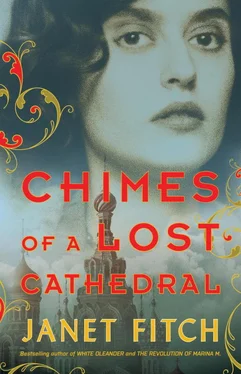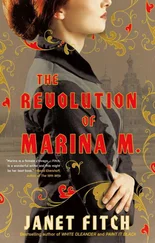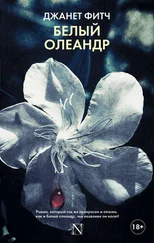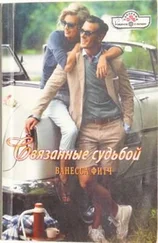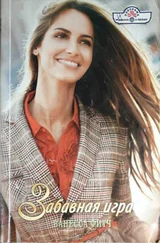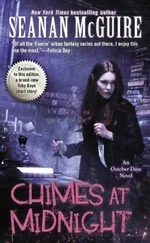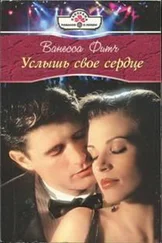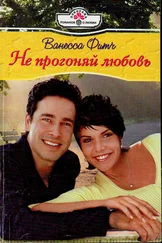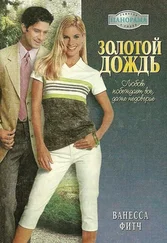“Everyone!” he shouted, his arm around me, holding me against his side like a newly emerged Eve. “This is my wife, Marina Dmitrievna Kuriakina. She’s coming with us!” Playing to the house. Same old Genya. He looked to me. “Right? You’re coming?”
My heart popped in my chest like a thin-skinned grape. Yes. Yes yes yes. “Give me fifteen minutes. I have to get a few things.” I’d worked too hard to get those papers. I would not leave them in that hot little room—my clothes, my gun.
“I’m coming,” he said. His face, familiar yet different. No longer any traces of boyishness. The broken nose, the hazel eyes. “I’m not letting you out of my sight. Not to sleep, not to take a shit. I’m going to be there for it all now.”
Together, we climbed the rickety stairs to the little room I shared with Styopa. I thought the staircase would collapse under our weight. Genya’s presence shrank the room to the size of a mousehole. Had I really diminished myself so much that I could even exist in such a place? This bed, these blankets, that cupboard, this table.
He peered at the serigraph above the table. “Nice,” he said. “Is it an early Kandinsky?”
“Malevich,” I said. I threw my few things into my old game bag, my labor book, my journals, fished out the gun from behind a loose board in the wall. I took my sheepskin and my boots and my fox-fur hat.
I stopped to press my head against Genya’s, forehead to bony forehead. “Tell me I’m not dreaming.”
He pulled me into him, his two big arms, his two hands. Crushing me, kissing me. He still smelled of himself, leaves and moss, and hay. “Just don’t wake up.”
I was shoving my swollen feet into my boots when the door banged back, and Styopa stood in the doorway. No, we weren’t dreaming, because Styopa wouldn’t be in it. Oh God. I had hoped to leave a note and be a hundred miles away before he found it. But here he was, big as life, looking like he’d walked into a wall. I felt myself shriveling like a snail you’d just poured salt on. I didn’t want to hurt him. He’d built up all his plans, his dreams, around me and my child. How cruel were the gods. The terrible bewilderment on his face. “I was just coming to get you.”
I knew how this would look—like I was running off with the first handsome Bolshevik who’d passed through town. But would the truth be worse? Would it make sense?
“Styopa, this is my husband. Gennady Kuriakin.”
He turned his gaze to Genya, and the bewilderment began to smolder. “The one who left you for Moscow? The one who abandoned you?”
“Wait just a minute, pal—” Genya said.
Before either of us could see what was coming, Styopa stepped in and punched Genya in the gut. He might only have one fist, but my God, it was an iron one. Genya doubled over, and as he came down, Styopa kneed him in the face. When he dropped, Styopa kicked him brutally.
“Stop it!” I threw myself between him and poor bleeding Genya before he could kick him again. God, what a mess. “He’s my husband. Please, try to understand.”
“You whore! She said you were a whore. She told me to watch out for you!”
Genya was still writhing on the ground, trying to catch his breath. “You told him… I abandoned you?” he wheezed.
“We’re going to get married!” Styopa wept, a grown man. It was the most painful thing I ever saw. “Raise the kid, it’s all going to work out. And then this scum shows up and nothing ever happened? You big dumb shit. Why don’t you go back to Sovnarkom or wherever you came from and steal somebody else’s wife.” He got in another kick before I could stop it.
“Styopa.” I tried to pull him away from my wheezing husband. “We’re not getting married. It’s over.” Ah, how horrible, but how liberating, to tell the truth. I could hardly bear to see his face, still full of fury but now crumpling like an old paper bag. He had finally heard me. He stood with his one arm pressed to his eyes, shaking. I thought he might have a seizure. “I’m sorry. Please, try to understand—I never thought I’d see him again.”
“You filthy whore!” He was sobbing unabashedly now, his moustache sagging, his lashes dark with tears. Then he threw himself on me, kneeling, and clutched at my dress. “Don’t leave me. I’ll kill myself if you leave me.”
He was tearing my heart, I could feel it shredding, and yet, I could not stay. “You’re better off without me, and that’s the truth.” I wrested myself free from his grip, grabbed my sack and helped Genya, still retching from the blows, to his feet. Watching Styopa’s right hand clench and unclench. “I’ve got to go. Find another woman. You’ll regret it if I stay, you know you will. You’ll never forgive me.” Everyone regretted me sooner or later.
He wiped his tears on the back of his one arm. If only there was something I could do to lessen his suffering, but I didn’t know how to save him and save myself too. “Beat it, before I kill you both. You bitch. I should throw you under that fancy painted train. Damn you and Lenin too.”
And so we left him there, weeping in the steaming ruins of his life, another luckless soul dearly wishing his path had never crossed my own.
Ah! To be moving! The wind in my face, the rumble of ridden thunder, rocking me, shaking the dust from my feet. The speeches of the giant wheels declaiming the miles, fire and steel, hurtling me away from Tikhvin and all my compromises, Styopa’s heartbreak, floors and brooms and kitchens. I felt like all the clocks in the world had started again. At a time when any ratchety milk train creaking and screeching its way back to Petrograd would have been enough to fill my heart twelve times over, this was the Literary-Instructional Train Red October, a demon, a carnival, a smoke-belching volcano of the Modern. Soldiers from Tula and sailors from Kronstadt caught rides with us, heading for the front—the very sailors who had brought the Aurora up the Neva to train its guns on the palace, the vanguard of the revolution. We had hard-bitten Bolshevik politicals, we had actors and journalists. And everyone was enlivened with determination, even vision. Hope unfurled like a flag—now I remembered it. No longer was I sidelined in Tikhvin or Ionia or East Mudhole, Wretched Hut Oblast, I was back on the train of the revolution, from which I’d somehow fallen, hauled aboard by Genya’s strong hand. So many things had come between us, I thought as I slept tucked under his chin in his compartment, listening to the song of the rails, clickety-clack. Vera Borisovna, Kolya, my life’s nightmare turn, the months at Ionia, my tenure as the barefoot bride—yet somehow I had risen, again breathing the shocking air of the Future, like Persephone walking into the sunshine after her months in the underworld, blinking to find that color had returned to the earth. Lupine and cornflowers surrounded us as we raced through the fields of June. Again, there were sounds! Train music and meadowlarks, accordion and guitars, Genya reciting his verse, actors with their thrilling voices, the new songs the soldiers sang, bawdy chastushki and rousing anthems. How muffled Tikhvin had been, wrapped in cotton, my ears packed with straw.
Genya, my Genya, sweet. Pulling me aboard his life just as he had in 1917. And away we rode, hurtling across Russia toward the front, where the civil war raged. Was I afraid? I was more afraid of Styopa, of the Tikhvin Women’s Club, dirt of a stalled mediocrity filling my mouth, packing my nostrils, muddying my eyes, as I disappeared into the ground. Our sailors and soldiers gave me strength. Truthfully, we wouldn’t be the ones up against White bayonets unless the train itself was attacked. But a fight to the death would be a finer fate than moldering to the end of my days, eating my way in a circle around a peg in the ground. Racing across the green fields on the agit-train, I felt free. Like some crazy giantess, I could stand astride continents. I needn’t cut myself down to fit Styopa’s bedframe any longer.
Читать дальше
